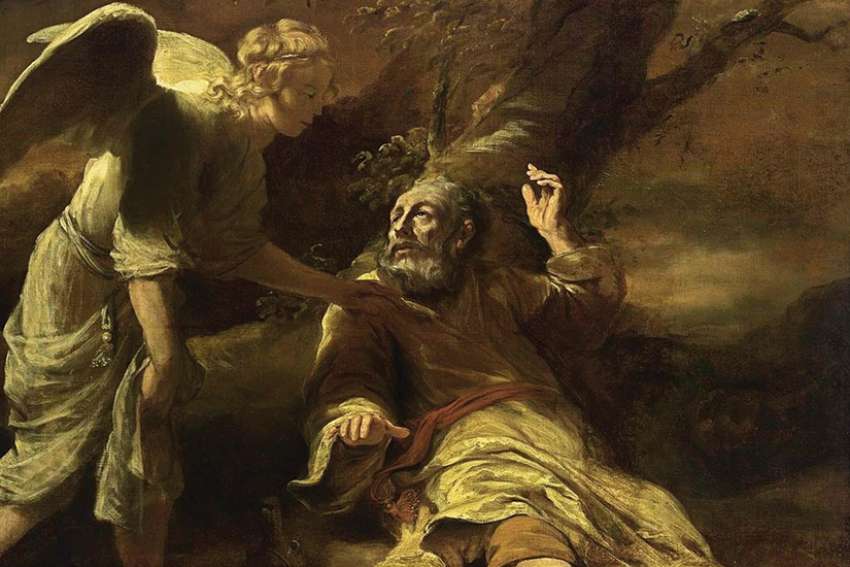The Scriptures are not about people 2,000 or 3,000 years ago — they are all about us. The basic message that they reveal applies in every age and situation.
Our situation today is one of dwindling resources with rising fear and anger — a lethal combination. This fuels so much of our rancorous hatred and the polarization that has overtaken us. When people feel threatened or deprived, the human tendency is to clutch fiercely to what one has and exclude others. Self-survival becomes paramount, and this theme is one that we find in books and films. A few people in a lifeboat struggling to divide (or steal) the little remaining food is but one example.
The Scriptures teach us that trust, love and generosity are far more than virtues or “nice things” to do — they have a power all their own. When Elijah asked the widow of Zarephath for food, her initial response was one of fear and despair. Due to the drought and famine, she barely had enough for her and her son. She was in the process of preparing their last meal before starvation took them.
But Elijah was reassuring and comforting. He told her not to be afraid. If she did as he asked, God would reward her kindness and generosity, and would provide for her and her son. What God promised came to pass. The oil and flour were replenished continually and she lacked nothing.
Elijah also speaks to us: Do not be afraid. Share what you have; do not hoard or grasp; there is more than enough for everyone.
Our world is increasingly divided between the “haves” and “have-nots,” but this is all a human creation. God’s message to us is that when we truly walk with God, there are no “have-nots.” This applies not only to the basics of life, such as food and water, but natural resources, medicine, technology, education. Most of the world’s wealth and resources is owned by relatively few at the expense of the many.
Imagine a world in which walls are not built to keep others out and in which there is enough for all. The words of Elijah (and so many other divine messengers) ring true today: Do not be afraid; open your hands and hearts.
Hebrews celebrates the new age that Christ inaugurated. Christ is the sacrifice, the temple and the eternal high priest. He is far above the manipulation of human beings or the misunderstandings of human thought systems — He is compassion itself. He empathizes with us and can be compassionate because He, too, has suffered and struggled. He is always for us, never against us, and He always reaches out to those who eagerly wait for Him.
Jesus was not only addressing the scribes in His denunciation of arrogance, self-aggrandizement and abuse of power. The scribes were no worse than others — they just happened to be in positions of power and prestige. In a sense, they were trafficking in the faith of the people.
Religion was used to inflate their egos and fill their pockets. All religions have been and are guilty of the same tendencies. A sense of entitlement and a feeling of superiority over others has contributed to the crisis the Church is presently experiencing. The antidote to this poison, as Jesus, the saints and more recently Pope Francis have continually reminded us, is humility and a well-developed sense of service. No one is more important or privileged than another.
We all need to be conscious of our own spiritual poverty and need. Following the example of the widow of Zarephath, the widow in the Gospel story donated all she had. It wasn’t much in size, but it was enormous in its generosity.
Most people give from their surplus and often don’t even feel the pinch. The widow received no tax receipt or recognition, just the knowledge that she had not held back anything. She must have been trusting and unafraid. The story did not tell us what became of her, but it would be fitting if God had blessed her in some way so that her generosity came back to her.
We receive in proportion to what we have given. By being humble, trusting, unafraid and open-handed we contribute to the healing of our broken world.


